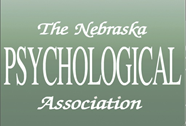 Women More Likely To Report Symptoms of Stress
Women More Likely To Report Symptoms of Stress
NPA and APA Offer Stress Management Tips for Mother’s Day
(May, 2014)
In today’s busy world, many women work to balance considerable responsibilities at work and at home. Women make up 47 percent of the total U.S. labor force according to the U.S. Department of Labor. In addition, an American Psychological Association (APA) workplace survey found that nearly one-third of employed adults report difficulty balancing work and family life. As families across the country pause to celebrate the women in their lives this Mother’s Day, the Nebraska Psychological Association (NPA) is calling attention to the unique stressors that women face and the health consequences they may experience as a result.
According to APA’s 2013 Stress in AmericaTM survey, women are more likely than the general public to report symptoms of stress ranging from lack of energy to feeling overwhelmed to being unable to control important things in their life. The survey also found that despite the challenges they report, women appear to be more aware than men of the impact stress can have on their lives. Women are more likely to say stress has a strong or very strong impact on their health.
“As health care decision makers and often caregivers for their families, women tend to put others’ needs before their own,” Joe Swoboda, Ph.D., NPA President said. “With so many competing responsibilities, women often don’t take time for themselves and their overall wellness can be compromised. This Mother’s Day, let’s give all the moms we know a break to help lighten their stress and enjoy the day.”
APA and NPA offer these healthy lifestyle strategies for busy women, mothers and caregivers:
• Take care of yourself - Set aside time at least once a week to engage in healthy activities that you enjoy. Try going for a long walk, listening to music or reading something that interests you to relax. Making time for yourself will help you manage stressful situations and allow you to better care for the whole family.• Recognize how you deal with family stress - Some people deal with stress by engaging in unhealthy behaviors, such as smoking, drinking, comfort eating or yelling and becoming irritable. Remember that stress is inevitable. What makes the biggest difference is how you manage that stress.• Prioritize - You can only do one thing at a time. Delay or say no to the unimportant tasks, and make appointments for more important tasks, such as spending quality time with a spouse or child• Be organized - Keeping the family and yourself organized reduces stress. Put family health information in separate folders; get family members to keep laundry in color coded baskets; keep book bags in assigned bins. Last-minute searching for things adds to mom’s stress. Enlist your children’s help in developing an organization plan for your household - if they are involved in the planning, they will be more likely to follow through..• Ask for help - Enlist and accept help from others including friends and family. Identify ways your family can help with specific needs that must be met like providing a meal or babysitting so you can find time to take a break and rejuvenate. Take time to connect with your girlfriends when you are feeling overwhelmed. Strong female friendships can help women overcome stressors. If you feel overwhelmed by stress or the unhealthy behaviors you use to cope, you may want to talk with a psychologist who can help you address the emotions behind your worries, better manage stress and change unhealthy behaviors.
For more information on stress and mind/body health, visit www.apa.org/helpcenter and follow@APAHelpCenter on Twitter. To find out more about NPA visit www.nebpsych.org and follow us on Twitter at @NEPsychAssoc.
# # #
 The Nebraska Psychological Association is the only statewide organization dedicated solely to represent the interests of psychologists and psychology across Nebraska. NPA membership includes 40% of the licensed psychologists in Nebraska, and is an affiliate of the American Psychological Association. NPA promotes the independent practice of clinical and consulting psychology; the highest standards of ethical & effective practice; the dissemination of evidenced based practices; the application of psychological resources to address social problems; and the education of government entities, elected representatives and the public on the practice and science of psychology. NPA holds scientific and professional meetings, conducts continuing education programs, and advocates on behalf of psychology in the Nebraska Legislature. NPA’s Central Office is located in Lincoln, NE.
The Nebraska Psychological Association is the only statewide organization dedicated solely to represent the interests of psychologists and psychology across Nebraska. NPA membership includes 40% of the licensed psychologists in Nebraska, and is an affiliate of the American Psychological Association. NPA promotes the independent practice of clinical and consulting psychology; the highest standards of ethical & effective practice; the dissemination of evidenced based practices; the application of psychological resources to address social problems; and the education of government entities, elected representatives and the public on the practice and science of psychology. NPA holds scientific and professional meetings, conducts continuing education programs, and advocates on behalf of psychology in the Nebraska Legislature. NPA’s Central Office is located in Lincoln, NE.
